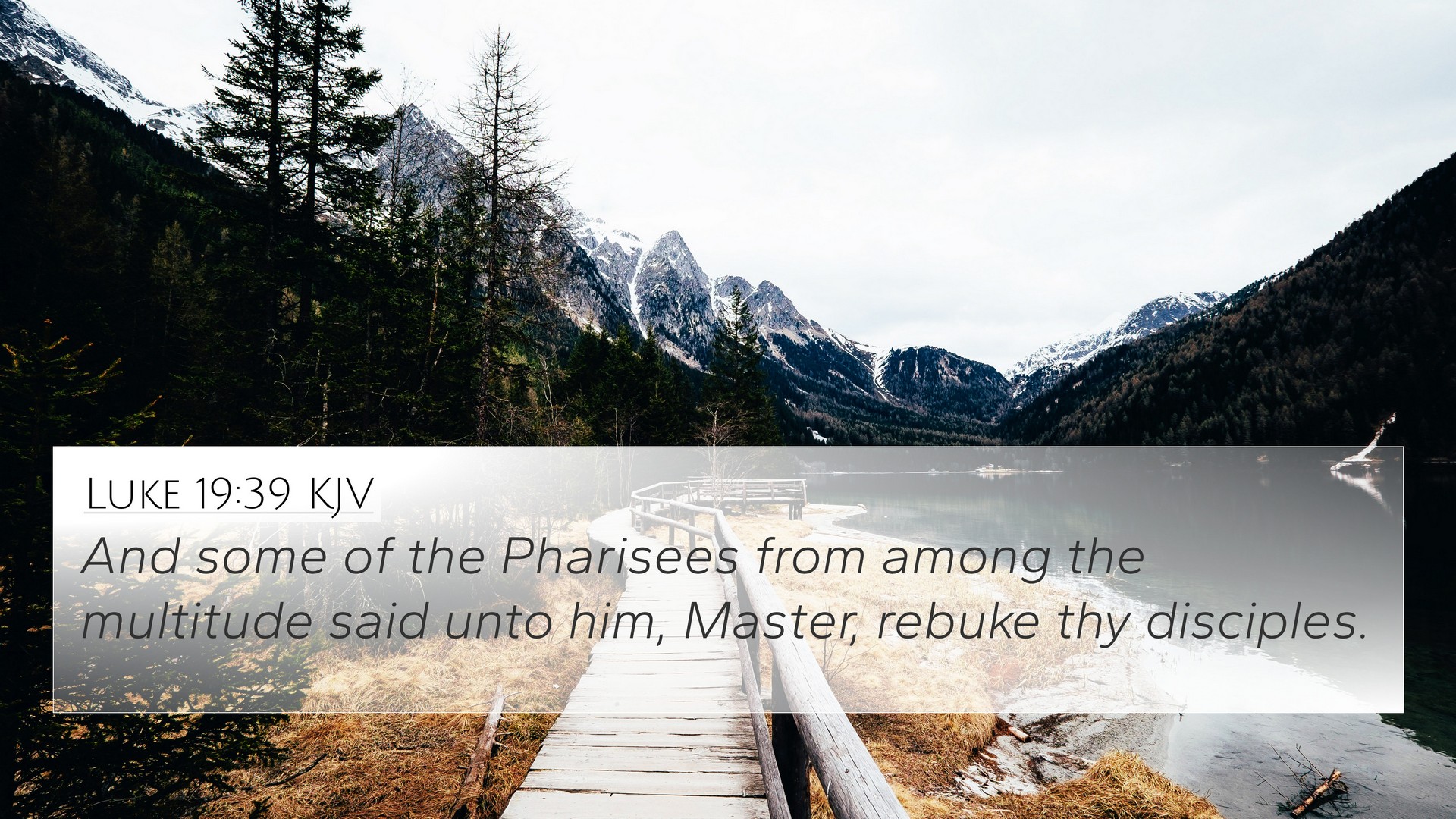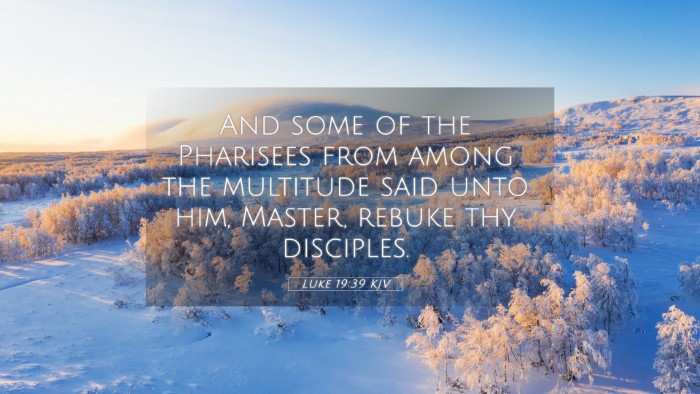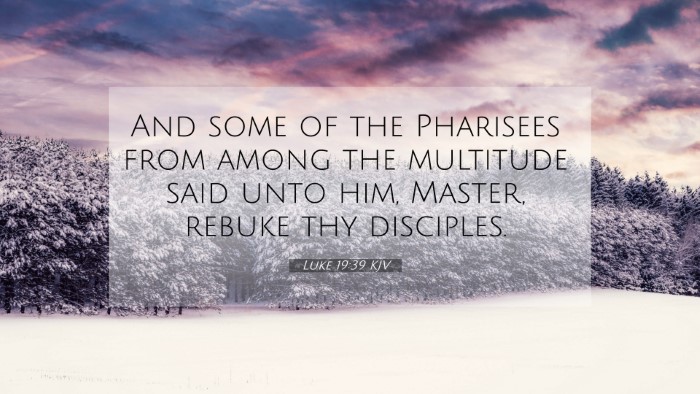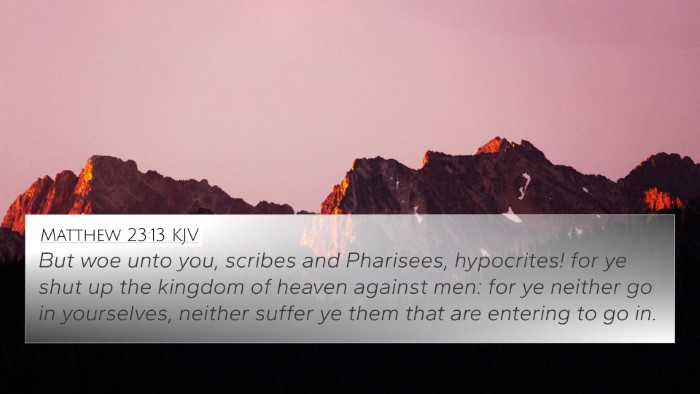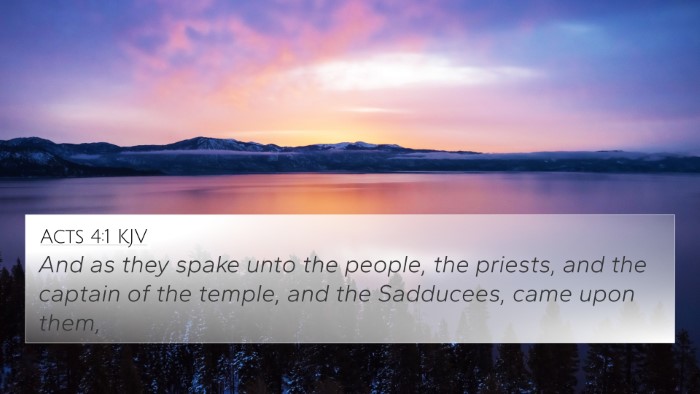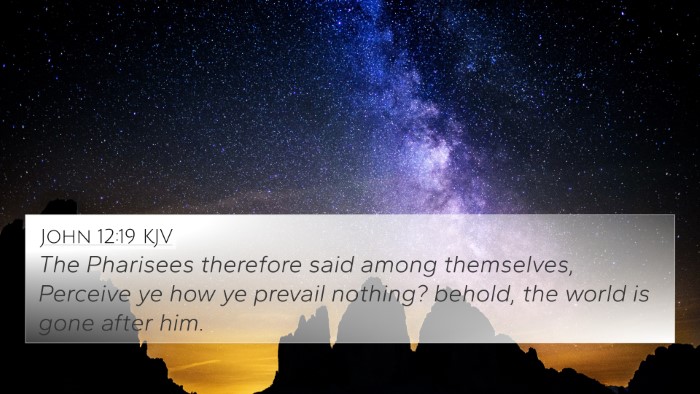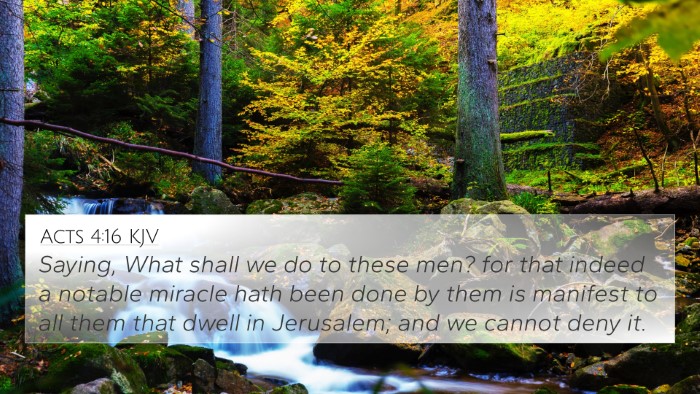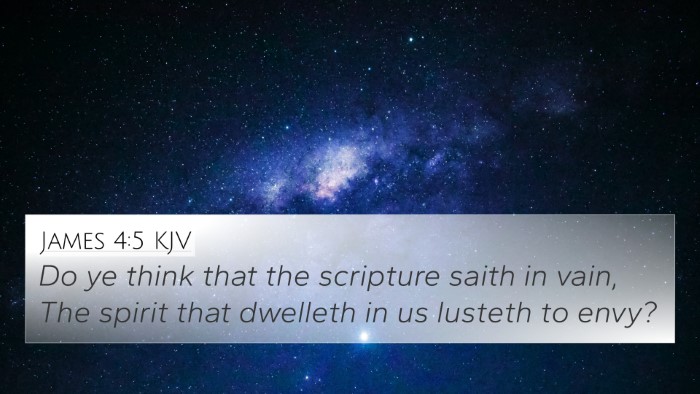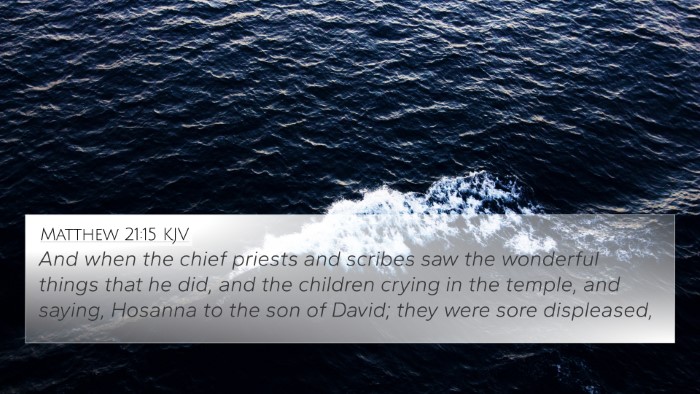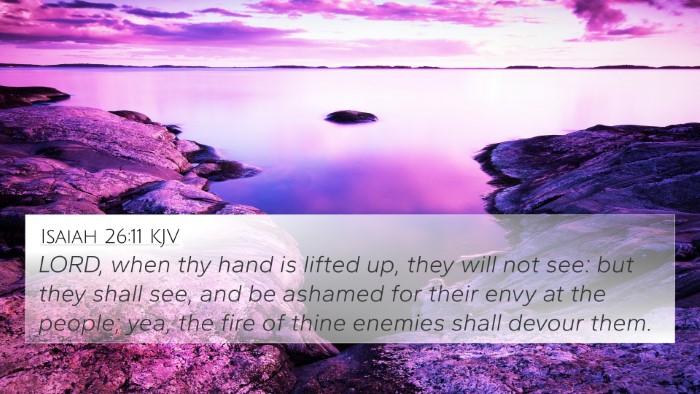Understanding Luke 19:39
In the Gospel of Luke, chapter 19, verse 39 presents a moment of significant tension during the triumphant entry of Jesus into Jerusalem. The verse states:
"And some of the Pharisees from among the multitude said unto Him, Master, rebuke Thy disciples."
Summary of the Verse
This verse captures a pivotal moment as Jesus enters the holy city, surrounded by His devoted followers who are joyfully praising Him. In contrast, the Pharisees—representatives of religious authority—express their discontent with the adulation directed towards Jesus. They demand that He silence His disciples, revealing a clash between the established religious order and the emerging recognition of Jesus as the Messiah.
Insights from Public Domain Commentaries
Matthew Henry's Commentary
Henry emphasizes the irony of the religious leaders’ demand, highlighting their inability to acknowledge Jesus' authority. He suggests that their request reveals their profound misunderstanding of the prophecies concerning the Messiah. The Pharisees sought to maintain control over the situation, reflecting the broader resistance to Jesus' mission.
Albert Barnes’ Notes on the Bible
Barnes notes that the disciples’ praise was an acknowledgment of Jesus as the King. The Pharisees feared that this recognition would incite the Roman authorities and create unrest. He elaborates on the accountability of the Pharisees, implying that their request stemmed from fear rather than a sincere desire for truth.
Adam Clarke's Commentary
Clarke provides a deeper historical context by discussing the expectations of the Jews concerning the coming Messiah. He observes that the Pharisees were deeply entrenched in tradition and unable to recognize this fulfillment of the Messianic prophecy. Clarke also points out that ultimately, Jesus did not rebuke His disciples, implying the significance of their praise.
Thematic Connections
This verse opens avenues for rich thematic exploration through cross-referencing Biblical texts. Below are connections to other scriptures that elucidate similar themes of recognition, opposition, and the celebration of Jesus' ministry:
- Matthew 21:15-16: Highlights children's praise and the reaction of the religious leaders.
- Mark 11:9-10: Records the acclamation of Jesus as He enters Jerusalem, amplifying the disciples' joy.
- Luke 19:38: Directly ties to the ecstatic praises of the multitude, emphasizing the prophetic fulfilment.
- John 12:13: Illustrates the public acknowledgment of Jesus as King and its implications for His ministry.
- Psalm 118:25-26: A prophetic foundation for the acclamations being directed towards Jesus, linking with Jewish Messianic expectations.
- Isaiah 62:11: A prophetic text anticipating the coming of the King, paralleling the events in Luke.
- Matthew 23:37: Reflects on the lamentation of Jesus over Jerusalem, contrasting the joy of the entry with the city's rejection.
- Acts 4:17-18: The forbiddance of teaching in the name of Jesus, echoing the Pharisees’ fear of recognition.
- Colossians 1:18: Asserts Christ's supremacy, which the Pharisees were unwilling to accept.
- Revelation 7:9-10: Looks forward to the ultimate recognition of Jesus by all nations, echoing the celebration in Jerusalem.
Conclusion
Luke 19:39 serves as a profound reminder of the dichotomy between praise and rejection within the gospel narrative. It provides a vivid illustration of the tensions present during Jesus' time, opening up discussions on how the recognition of His role as Messiah continued to evoke resistance. The extensive cross-referencing of Biblical texts allows for a deeper understanding of these events and their significance in the broader narrative of scripture.
Further Study and Reflection
For individuals seeking to dive deeper into the rich tapestry of scripture, various tools for Bible cross-referencing can uncover connections between verses and themes. Engaging in cross-reference Bible study can enhance one's understanding of the connections between Old and New Testament themes.
